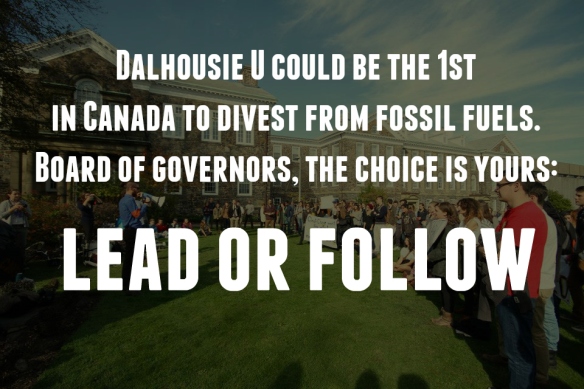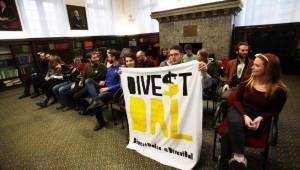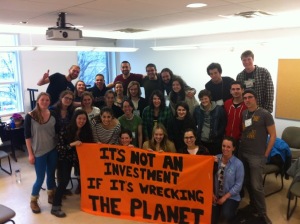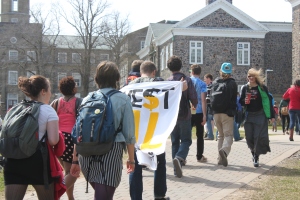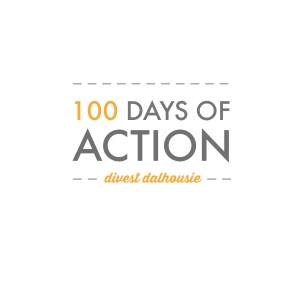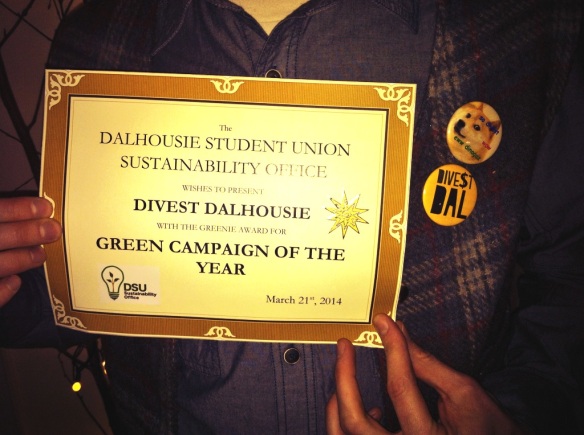Emi Belliveau had the floor at the Oct. 21 BoG meeting.
This is what she had to say:
Thank you for giving me the floor today. I am here because I am twenty-two years old, and for the rest of my life I will be facing the implications of the climate crisis.
And yes, this is a crisis.
Drought, flood, ocean acidification, desertification, more severe and unpredictable weather events, exaggerated by climate change claim the homes, livelihoods, and lives of millions of people, and are connected to additionally complex social issues.For example, this year the world watched its first climate refugees, citizens of island nations, forced to leave their homes with little support.
While the global south is disproportionately affected by these injustices, the global scale of climate change means it will hit home for us, too. Nova Scotia will also be impacted by sea level rise, and our many coastal communities, including Halifax, will bear the cost of climate change adaptation.
This crisis is happening now, and every day that passes without action the gravity of the climate crisis becomes more enshrined in my future – and the future of everyone in this room.
So we are standing together because climate change will change all our lives unless we change it.
Here at Dal we have the incredible ability to take action through divestment that contributes to a growing social movement and global climate change action.
Divestment is being championed by student campaigns across North America, but this is not only a student issue. There is a growing list of international figures and institutions that have explicitly endorsed fossil fuel divestment as being necessary for a liveable planet.
This list includes:
UN Secretary General Ban Ki-Moon
The World Health Organization
Chief of the World Bank
The most recent IPCC Report
The Rockefeller Foundation
And Mark Carney, a prior head of the Bank of Canada now serving as head of the Bank of England, recently re-stated points by the International Energy Agency recognizing the serious risks presented by the carbon bubble.In addition to broad support for divestment, leaders in Canada have called upon THIS board to make the right decision, and to divest. These leaders include: Order of Canada recipient David Suzuki; Dalhousie alumni and Green Party Leader Elizabeth May, who last week during her lecture at Dal said that this is not a partisan issue, but one affecting the future of all citizens; and dozens of faculty and community leaders in Halifax.
The world is watching Dal make this choice.
Divestment is an opportunity that not only protects the school from risks of the carbon bubble and under-performing investments such as coal, but also broadens the discussion on climate change, puts pressure on C02 emitters to change business practices, and has empowered hundreds of students to get engaged and take action today.
Each week momentum for divestment grows and more academic institutions, faith groups, cities, communities, and foundations commit to divest. This pattern is occurring nationally and abroad. On October 8th Glasgow University, which I had the privilege to attend on exchange from Dal in my third year, committed to divest 32 million dollars of its endowment fund from the fossil fuel industry, making it the first in the UK and gaining international accolades. Even more recently, the University of Victoria Board of Governors has agreed to a student referendum on fossil fuel divestment. This is sure to pass.
There can only be one university in Canada that is the first to divest.
We have the opportunity to be such a leader, the first school in Canada to divest, by deciding to vote at the November Board of Governors meeting, just like this Board did in 1986 when it decided to divest from apartheid south Africa – choosing to act with integrity and respect for all human life. While divestment from apartheid South Africa was a critical social justice issue, Climate change is even bigger. While divesting from Apartheid South Africa was an important moral cause, the warming of over 2 C that would occur from burning these fossil fuel reserves makes fossil fuel divestment an existential one.
This board has everything it needs to make this decision, and the resources to investigate how the divestment process will work at Dal.
Divest Dal has offered support and information at any time throughout the past year, and will continue to do so.
I urge you to commit to a decision on divestment at the November 25 Board of Governors meeting.
We will be there. We are growing. Myself and the 1810 signatories on our petition aren’t changing our minds on divestment – it’s now your turn.

